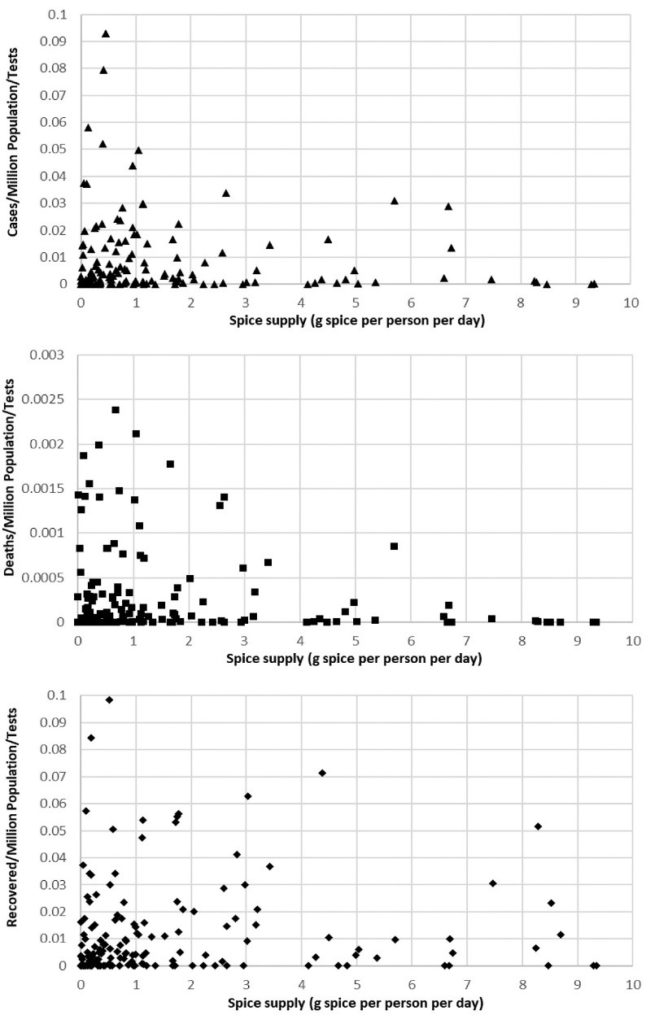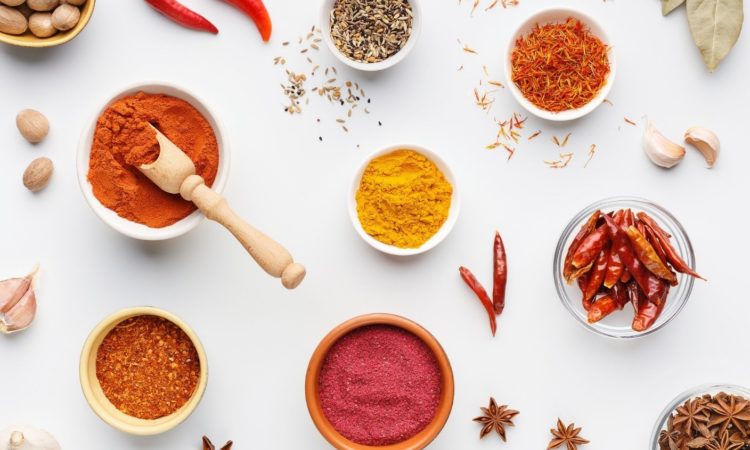Title: Immunity-Boosting Spices and the Novel Coronavirus
Authors: Yehya Elsayed and Naveed Ahmed Khan
Journal: ACS Chemical Neuroscience
Year: 2020
Article: https://pubs.acs.org/doi/pdf/10.1021/acschemneuro.0c00239
Cover image from pixabay by atulkprjapati2000
COVID-19 has been an important research area for scientists helping to combat the global pandemic, and, now in June 2020, we still have a lot to learn about the disease and how to treat it. We know that there are no genetic markers that make someone more likely to get sick with the coronavirus, but could there still be another factor that helps some groups have fewer fatalities? Researchers in this study found an interesting correlation between spice supply and COVID-19 illnesses.
They began their research by looking at data in New York City, and found that fatalities from COVID-19 were much less among South Asian communities than other ethnicities. Asians in the city had a 50% lower than expected fatality rate based on their population size. Other groups did not have such a marked difference in their population when compared with the fatality rate: Whites are 27% of the population with 32% fatality rate, Hispanics are 34% of the population with a 29% fatality rate, and Blacks are 28% of the populations with a 22% fatality rate. Researchers began looking into why this marked difference in the fatality rate of Asians in NYC is so much lower, comparing regional differences, environmental factors, cultural variations, and the ages of the population. Based on this examination, the prominent correlation is in the spice consumption of the community with the fatality rate.
From this starting point researchers then looked at the data of 163 countries, comparing the spice consumption with the fatalities, total cases, and total recovered cases. Countries with higher consumption of spices per capita, had fewer numbers of deaths due to COVID-19 and a higher recovery rate (Figure 1).

Extensive previous research has been done to study the health benefits of many spices, with anti-inflammatory, antiviral, antifungal, and antibacterial properties. Many of these have been used throughout history as herbal remedies, now backed by our scientific understanding of their active components. For example, ginger is known to have antibacterial and anti-viral activity, garlic has the molecule allicin with antibacterial, antiviral, and antifungal properties, turmeric has the active molecule curcumin known to be an antioxidant with anti-inflammatory, and clove oil has antioxidants and antibacterial properties and is also known to help with asthma and cough.
More research is needed to understand the chemical mechanisms and pathways of activity for each of these compounds and how they relate to COVID-19, especially since our understanding of how the coronavirus attacks our bodies is constantly growing. None of these foods will be a cure for COVID-19 or protect against the illness, however, keeping our immune systems healthy is crucial, and eating some of these spices is a small action we can take to help, and this research is an interesting insight into how our daily lifestyle can impact our susceptibility to illness.

